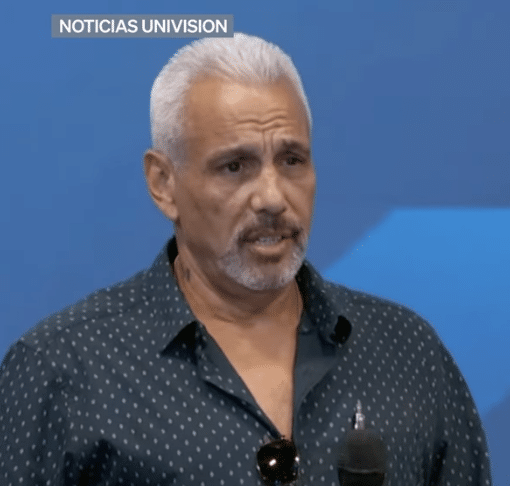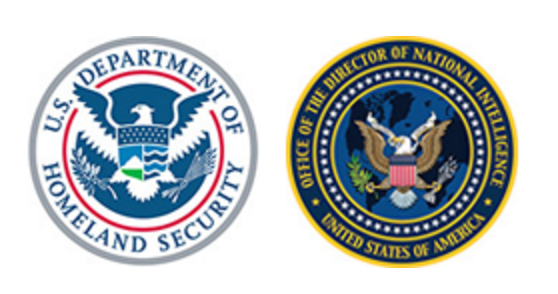Could This Week’s Developments Change the Race?
As you know, Nicole Sandler and I do a wrap up of the week every Friday. We tape at 12PM ET, 5PM my time, and 9AM Nicole’s time (through daylight savings). It may show, but I usually walk into those recordings with no sense of what happened in the previous week. These weeks have all been so momentous for so long they’ve each felt like a year running into the next one.
This week, though, I think it important to assess the week as a whole, because I think it’s possible that events of the week will have a substantive change on the results of the election. No promises. But it is possible.
Start with the baseline: The race is statistically tied in all seven swing states. The race is close to tied nationally. If nothing happens, the race will be determined by two things: first, which side can get more of its voters to the polls, and second, how much Trump’s expected fuckery can thwart the actual vote from being counted.
At this stage, all we know is that people are voting — Jimmy Carter, a record number of early votes in Georgia, and even people from the hardest hit areas of North Carolina stood in line and voted in strong numbers yesterday. There are promising signs of greater than historic early vote from women (though Trump’s men could come in late). Nevada’s Clark County has still not posted the bulk of votes there, so it’s too early to tell if the Republican narrowing of registration in Las Vegas can swing the election. Early turnout in Arizona has been 44% Republican as compared to 33% Democratic, but the abortion referendum may affect how even Republicans vote.
It’s just too early to tell, yet.
As for fuckery? In Georgia, at least, there’s been some pushback against efforts to disrupt certification, including (again) from Republicans. NBC has done an update of how Trump deliberately stoked tensions at the TCF counting center in Detroit, and how Trump is training vote observers to do so again. Most counties in Michigan, however, will count early votes ahead of time. Meanwhile, Republicans — and one gambler who might be a certain South African billionaire — are using voting markets to create the illusion that Trump is winning, which will stoke distrust if that turns out to be fake, the same way shoddy GOP polls did in 2020.
It’s a tied game, and Trump has tried to systematize the ways he attempted to cheat in 2020.
Before we turn to whether events of the weeks might change that deadlock, consider why it’s tied.
It’s tied because 35 to 40% of likely voters are cult-like followers of Donald Trump. Those people live in a hermetically sealed world of his propaganda. Short of cognitive collapse, none of those people will abandon their Donald (though a surprising number of them are not voters).
It’s tied because 8 to 13% of voters believe a number of things that credit Trump with more success than he had and taint Kamala Harris with things she didn’t do. They blame Biden for global post-COVID inflation. For some justifiable and some unjustifiable reasons, they believe the economy is in worse shape than it is. They often forget how poorly Trump handled COVID. They may not know of Trump’s epic corruption. Because of a number of changes in the media, they don’t regularly access credible descriptions of the truth. Many of these people recognize that Trump is a horrible person, but because they credit him with successes he didn’t earn, they’re willing to vote for him anyway.
A significant chunk of these people can be motivated by the grievance politics that dominates the Trump cult — that’s why this year’s election will significantly pivot on education levels. Trump’s grievance politics are significantly based on his false claims to have been unfairly persecuted and his false claims never to have persecuted others. (This dynamic is a big part of what I’ve been trying to explain in the Ball of Thread podcast I’ve been doing with LOLGOP.)
In short, the reason the US is a knife’s edge away from electing a fascist is significantly a media problem, both the existence of the hermetically sealed world of Trump propaganda and the collapse and/or abdication of credible media for other reasons. The people who would make this election a blowout loss for Trump are often not accessing truthful information.
I read an anecdote on Bluesky that exemplifies this: Someone chatting about voting with two guys who planned to vote for Trump who believed that all of his criminal cases had been dismissed and who had no idea that Trump has been exhibiting signs of mental instability. It’s a media thing. Given that virtually no media outlets correct Trump’s false claims about his criminal exposure, you can’t expect voters to know better. And thus far, the press has sane-washed Trump’s recent decline.
Three things happened this week that may chip away at this dynamic for key voting blocks. Those are:
- Trump’s meltdown in Oaks, PA, followed by a series of canceled events and poor showings
- October 7: Trump cancels 60 Minutes interview, leaving Kamala Harris a solo opportunity
- October 14: Trump sways to music for 39 minutes in Oaks, PA after giving word salad answers to the questions he did take
- October 15: Bloomberg editor John Micklethwait savages Trump’s economic plans; Trump cancels Squawkbox appearance
- October 16: Trump misses a few answers in a fluffed up Fox News town hall for women then really blows the Univision town hall
- October 17: Trump pulls out of an October 22 NRA event in Savannah; Trump “postpones” October 21 NBC. interview
- Cracks in the curtain of disinformation pulled across Trump’s failures
- October 10: Harris appears at Univision town hall.
- October 15: Coverage of Harris’ Charlamagne the God appearance focuses on the label, “fascism”
- October 16: In Fox interview, Kamala Harris calls out doctored clip of Trump attacking “enemies within” and makes reference to Mark Milley’s attacks on Trump (though without using the word “fascist;” she also references all the Republicans, including former Trump aides, who’ve just appeared with her in Washington Crossing
- October 17: CNN exposes the editing Fox News did of the women’s town hall and Bret Baier confesses they didn’t show the “enemy within” clip (but takes the blame himself)
- The likely release, today, of the appendices behind Jack Smith’s immunity brief
To show why I think these developments might matter, I want to go back to Ramiro González, the man at the Univision town hall who asked Trump about January 6. As this person on Xitter noted, González actually asked a question at both Univision town halls. He asked Harris (mostly in Spanish, curiously enough) about rumors that the Biden administration wasn’t serving Republicans in FEMA relief.
In Harris’s response, she first asked if his family was okay. Then she addressed the disinformation about FEMA recovery. She told her story about never asking, as a prosecutor, whether witnesses and victims were a Republican or a Democrat, but instead whether they were okay. “We have seen where … people are playing political games,” she described Trump’s deliberate attempt to suggest that the Biden administration was playing politics. “You have a right to you know that your government and its leaders are putting you first, and not themselves.”
In the same appearance, Harris answered a question about whether she had been installed undemocratically, by describing Trump’s attack on rule of law. She listed the Republicans who were supporting her (including Alberto Gonzales, who is, whatever else you think of him and trust me I do, one of the biggest success stories for a child of migrants in US history), and described the mob on January 6. She stated that January 6 was one reason why Republicans were supporting her.
Those answers were on October 10. Less than a week later, González was back, noting explicitly that he had been a registered Republican, but was no longer registered as such. González pitched his question as a chance for Trump to earn back his vote. I think González sincerely wanted Trump to do so. González asked about January 6, about COVID response, about Pence not supporting him anymore.
Yes, this response was riddled with lies. But even basic ones, like his claim that “we” didn’t have guns, are going unchallenged even when journalists claim to fact check these claims. Still, Trump also didn’t answer the question, and that matters. He was asked about his inaction on January 6, not why people came to DC. He spoke instead about how many people wanted to hear him speak.
Importantly, it’s not just González who seemed to find this answer ridiculous. As the camera panned, several women sat with their arms folded; one looked shocked when Trump claimed no one was killed.
What I think we can see in these two appearances was what happens when Harris has a chance to break through the disinformation that Trump has been spreading. González and Mario Sigbaum, the guy who asked whether she had been installed undemocratically, came in to the Harris town hall believing bullshit that Trump had fed them. The Biden administration was withholding relief from Republicans. Harris had pushed Biden aside and gotten herself installed undemocratically. I have no idea whether her response worked for Sigbaum, but in answering Sigbaum, Harris said things that González would raise a week later with Trump, including that his former people were no longer supporting him.
This is the task before Kamala Harris, as more low-information voters head to the polls. She has to find a way to crack through the wave of disinformation that Trump has spread. These two clips show, I think, that when she has a chance to do that, either what she says or the references she makes or the empathy and leadership she models can be successful in persuading people not just that she’ll put their interests first, but that they’ve been lied to.
To be fair, they’re still getting lied to on social media. This week, for example, Christopher Rufo has been trying to seed claims that Kamala Harris plagiarized her book by cutting and pasting from a press release that the book cited. Many in the traditional press are still not telling the truth about Donald Trump — not about the guns his supporters brought to the Capitol, not about his obvious meltdowns, not about his criminal exposure.
But Trump’s public meltdown and his string of cancellations has finally titillated the chattering class whose claim that Harris couldn’t handle a tough interview was soundly debunked in the Bret Baier interview. Trump’s own fitness has become an issue again, eight years after the press got bored with that story so instead turned to Hillary’s emails.
And it has become clear, in the last week, that Harris’ events with Republicans have started to serve an additional purpose, in addition to giving Republicans permission to support her (though to be clear: González is the kind of self-identified Republican for whom that permission may be important). Those events, and Harris’ discussion of them, are a way to describe how many Trump Administration veterans, how many Republicans, have found him to be unfit.
Have found him to be a fascist.
They offer a credible way to make Trump’s unfitness a story. It’s the kind of story that may have helped to persuade González.
Again, I make no promises this will work. If it doesn’t, we’re looking at turnout and knowledge that Trump’s planning fuckery, even if we only know the half of what he plans.
But events of the last week may finally have stripped some of the curtain of lies that Trump hides behind.




